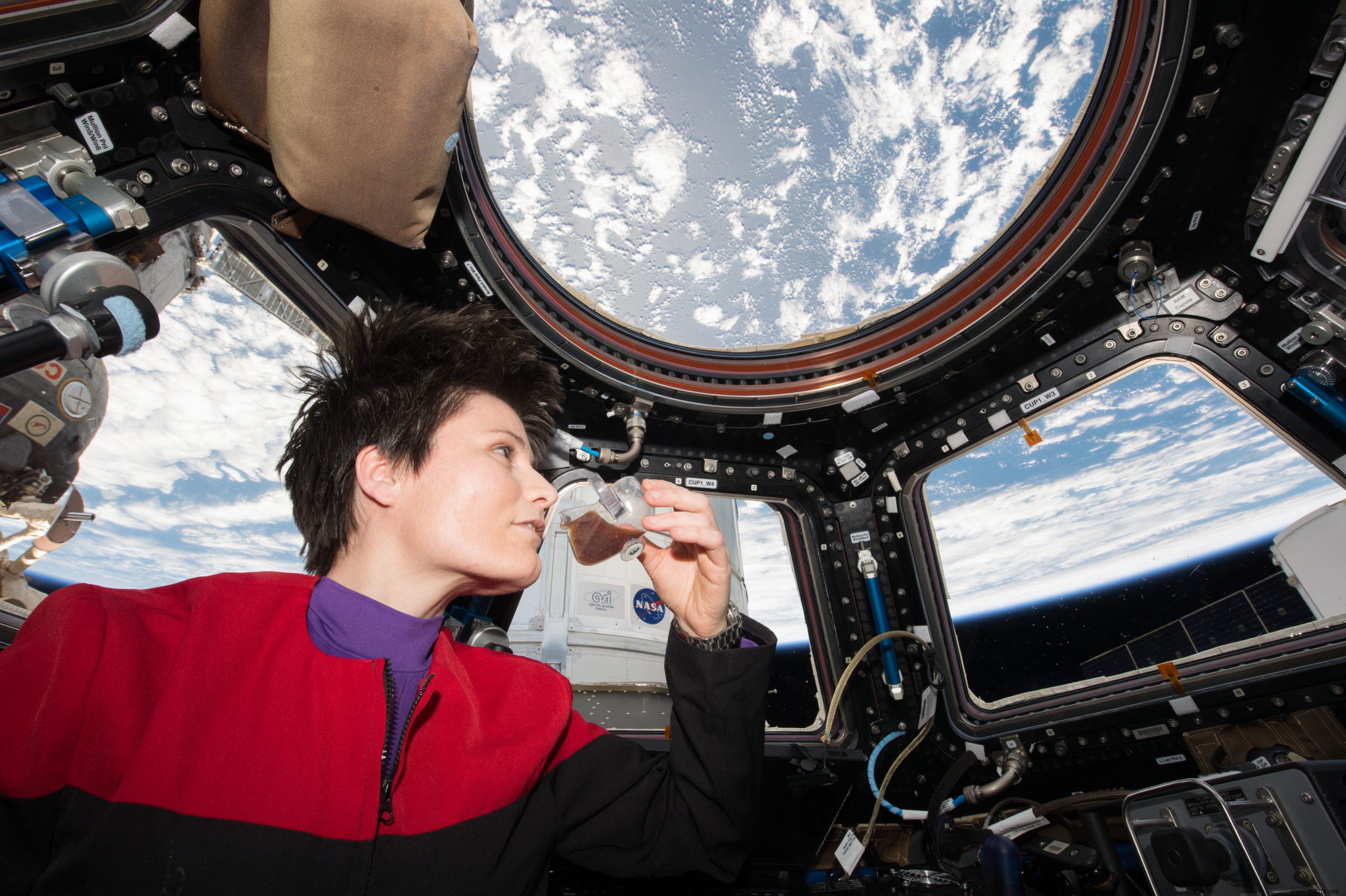On Saturday mornings, astronauts aboard the ISS spend a few hours cleaning the station to prevent bacterial and fungal growth. But how is a cleaning day above the Earth, concretely?
The weekend aboard the station is relatively quiet. To facilitate the astronauts' rest during these two days, the onboard cameras are not configured to broadcast live, while calls from the control center are rare, and generally contain only brief communications. Residents can relax as they see fit. Well, not quite.
In reality, the crew actually devotes three to four hours of their Saturday morning to cleaning their environment to prevent the proliferation of fungi, molds and other bacteria.
Microorganism control is naturally essential on board the ISS. According to some studies, some do even better in this microgravity environment than on Earth. Also, everything is done to avoid unnecessary risks.
“We must disinfect all surfaces we touch every week “, recently explained the Frenchman Thomas Pesquet, who arrived on site on April 24 for his second mission in orbit. Some measures, he added, "are similar to those you might find in hospitals or airports to prevent the spread of bacteria “.
Handrails, microphones, computers… To clean all regularly touched surfaces, astronauts use disinfectant wipes. As a general rule, it is the current Station Commander who assigns each person the areas to be cleaned.
"The most difficult modules to clean are definitely Node 3, where we have the toilets and exercise equipment, and Node 1, at the inside of which we eat "Italian astronaut Samantha Cristoforetti once said in a blog post. Usually, astronauts take turns cleaning the dirtiest modules.
Residents should also regularly vacuum the ventilation grilles inside which all the small debris floating in the cabin ends up being blown away. Again, this is essential. A blocked ventilation grill could indeed interfere with the carbon dioxide purification mechanisms of the station, making the air inside unfit for breathing.

Because the growth of harmful microorganisms in an environment as closed as the ISS can threaten the physical integrity of astronauts, experiments are regularly carried out to test various antibacterial and antiviral approaches .
Boeing, for example, is currently testing a new type of anti-microbial surface coating that could prevent the spread of microorganisms. This work could then be used in everyday life here on Earth, especially in airports.
The experiment, in effect, requires residents to regularly touch several sets of objects, including an airplane seat buckle, a piece of seat belt fabric, and a meal tray. Some are treated with the anti-microbial coating, and some are not. Upon the return of these samples to Earth, Boeing will analyze the effectiveness with which the coating was able to limit or even stop the spread of microorganisms.
The European Space Agency (ESA) had already carried out similar work not long ago. The experiment, called Matiss (Microbial Aerosol Tethering on Innovative Surfaces in the International Space Station), returned to Earth earlier this year after more than twelve months in space.